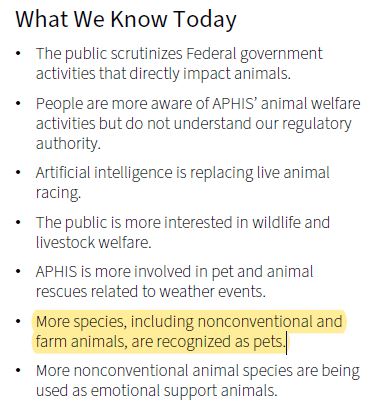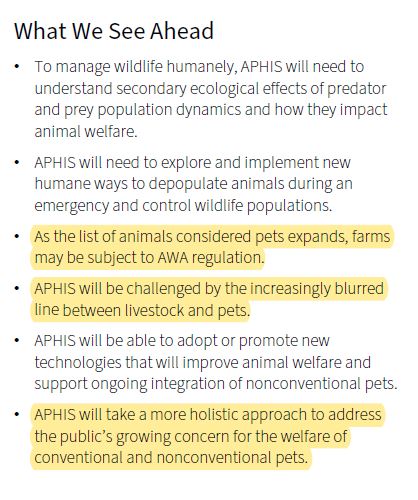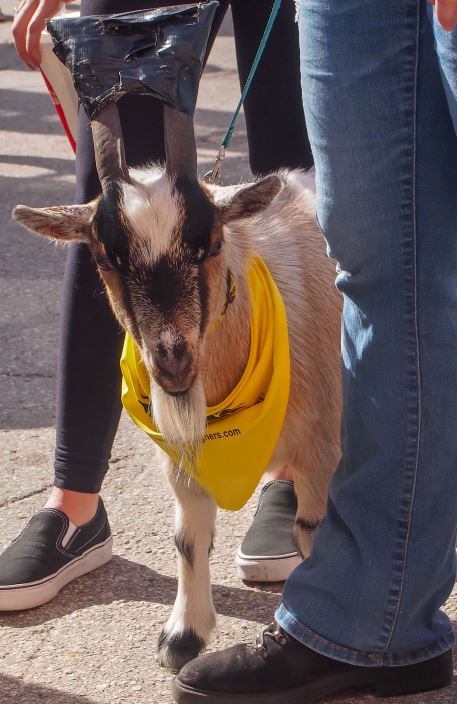The Animal and Plant Inspection Health Service (APHIS) is the U.S. Department of Agriculture sub-agency charged with administering and enforcing the federal Animal Welfare Act (AWA) , 7 U.S.C. § 2131, et seq. In connection with its “Strategic Plan” for 2023-27, APHIS issued a Strategic Foresight Report that “examines 10 societal, environmental, and technological trends that the Agency must be prepared to navigate. ” One such trend is “[e]volving perceptions around animal welfare and wildlife in human society.”
The animal welfare segment of the strategic foresight report contained some interesting remarks about farm animals, pets and the probability that farm animals will ultimately be subject to regulation under the AWA. That segment listed what APHIS says it “knows today:”
As can be seen, APHIS sees an increasing trend in farm animals being recognized as pets. Next to what APHIS says it knows today is what APHIS expects to “see ahead:”
These observations are quite interesting. Evidently, APHIS believes that, as more people make livestock into pets, that will be the fulcrum for the agency to expand its regulation to include farm animals. As APHIS summed it up in the “Shifting Values” section of the report:
In the future, more Americans will live in urban regions. They will seek healthier nutrient-dense products, and many will agree that livestock and wildlife should be provided the same rights as domesticated pets. This will add public, and by extension Congressional, pressure on APHIS to prioritize the use of humane animal agricultural practices. As the list of animals considered to be pets expands, farms could potentially fall under regulation of the Animal Welfare Act.
This prediction remains to be seen. At present, farm animals are not covered by the AWA. See 7 U.S.C. § 2132(g)(3) (definition of “animal” excludes “other farm animals, such as, but not limited to livestock or poultry, used or intended for use as food or fiber, or livestock or poultry used or intended for use for improving animal nutrition, breeding, management, or production efficiency or for improving the quality of food or fiber”). It would take an act of Congress to change this state of affairs, which has existed for the better part of the last 60 years. And it is far from clear that there is any significant political support for such a change, despite APHIS’ inclusion of a photograph of someone’s pet goat in its discussion of “Shifting Values:”



